Dr. Alexandru Bejinariu
Dr. Alexandru Bejinariu has a PhD from the University of Bucharest (2016). His main interests concern the phenomenological methodology in its Heideggerian and Husserlian design, the connection of phenomenological conceptuality in its development with ancient Greek and Christian traditions, the phenomenology of animality, and the role of embodied experience in the phenomenological investigation. Between June 2014 and September 2015 he was PhD Fellow of the Romanian Academy, Iaşi Branch, and between January 2016 and October 2017 he was Research Assistant in the project Phenomenological Approaches to the Anthropological Difference (IRH-ICUB). He is member of the Romanian Society for Phenomenology (SRF), the Nordic Society for Phenomenology (NoSP, since 2017), and the Center for Phenomenological Studies (CSF) at the Department of Philosophy, University of Bucharest. Other focus areas include: ancient philosophy, philosophy of religion, literary theory, post-structuralism.
Publications List
Articles
- Bejinariu A. (2023), On Husserl’s Theory of Alien Experience in the Logical Investigations, in: Human Studies, 2023 (Online First);
- Bejinariu A. (2015), The Phenomenology of Religious Life – From Primary Christianity to Eastern Christianity, in: Symposion: Theoretical and Applied Inquiries in Philosophy and Social Sciences, (2015) 2.4: 447–462. (Indexed in ERIH PLUS);
- Bejinariu A. (2015), Individ si subiect. Despre șansele recuperării individului în discursul fenomenologic la persoana întâi, in: Revista de Filosofie, LXII, Nr.3/2015, București, pp. 384 – 393.
Reviews
- Antonio Cimino, Phänomenologie und Vollzug. Heideggers performative Philosophie des faktischen Lebens, Frankfurt am Main: Vittorio Klostermann, 2013, in: Studia Phaenomenologica, (2014) XIV: 410–413;
- Dieter Lohmar, Denken ohne Sprache. Phänomenologie des nicht-sprachlichen Denkens bei Mensch und Tier im Licht der Evolutionsforschung, Primatologie und Neurologie, Springer, 2016, in: Studia Phaenomenologica, (2017) XVII.
Books/ chapters (including monographs)
- Bejinariu A., Borţun I. (eds.) (2017), Comunitate – identitate – diferenţă. Perspective fenomenologice [Community – Identity – Difference. Phenomenological Perspectives]. Bucharest: Zeta Books, 2017;
- Bejinariu. A (2017), Urechea lui Othello [Othello’s Ear], in: Sebastian Grama (coord.), Respir Shakespeare, vol 1, editura Universității din București, București, 2017, pp. 129 – 151;
- Bejinariu. A (2016), Arta de a te face „înțeles”. Comunicarea experienței prin discursul artistic și cel fenomenologic [The Art of Making Oneself Understood. Communicating Experience through Artistic and Phenomenological Discourses], in: Mădălina Diaconu, Christian Ferencz-Flatz (eds.), Estetica fenomenologică după centenar. Perspective istorice și tendințe actuale [Phenomenological Aesthetics after the Centenary. Historical Perspective and Contemporary Trends]. Iași: University “Alexandru Ioan Cuza” Publishing House, 2016, pp. 13–36;
- Bejinariu. A (2015), Metoda indicării formale și filosofia religiei în spațiul românesc [The Formal Indication Method and the Philosophy of Religion in Romanian Culture], in: Mihai-Dan Chițoiu, Savu Totu (coord.), Filosofie și religie în spațiul românesc [Philosophy and Religion in Romanian Culture]. Bucharest: ProUniversitaria, 2015, pp. 213–246;
- Bejinariu. A (2014), Tehnica formării conceptelor filozofice [The Technique of Philosophical Concept Coining], in: Bogdan Mincă, Remus Breazu, Iulian Apostolescu (eds.), Aspecte ale metodei fenomenologice [Phenomenology between Method and Technique]. Bucharest: Bucharest University Press, 2014, pp. 135–158;
- Bejinariu. A (2014), Indicarea formală şi problema uitării fiinţei în cursurile de tinereţe ale lui Martin Heidegger [Formal Indication and the Problem of the Forgetting of Being in Martin Heidegger’s Early Courses], in: Paul Marinescu, Christian Ferencz-Flatz (eds.), Figuri ale vulnerabilităţii existenţiale. De la uitarea de sine la uitarea fiinţei [Figures of Existential Vulnerability. From the Self-Oblivion to the Oblivion of Being]. Iași: University “Alexandru Ioan Cuza” Publishing House, 2014, pp. 61–80.
